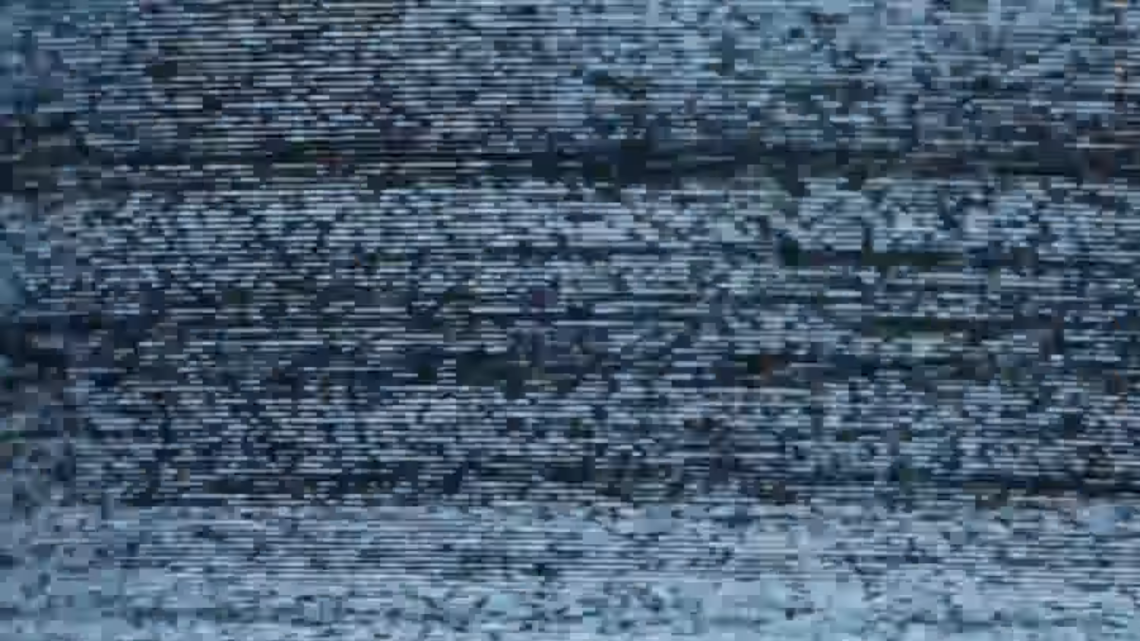Static in a technological context is probably becoming less and less a part of our lives as analog media are superceded by digital. But since I grew up in the 80s and 90s, static is a part of my mental vocabulary. The radio breaking up into crackling bursts of sound as you drive farther away from the transmitter, the background radiation of the universe flickering on channel 3 of your TV, the rolling scan lines of corrupted analog video tapes. Now we probably encounter static more often as an aestheticized retro signaler, a post processing effect applied to crisp and beautiful digital images in order to lend them a certain feeling. But I remember static, hiss and noise as problems to be overcome, the battle to achieve a favorable signal to noise ratio.
This morning as I write this I’m experiencing what I think of as mental static. The signal is not clear. I feel anxious without a clear reason why. I feel irritable. Achieving the basics is a struggle. The signal is breaking up. It’s funny how much lately I’m referencing Doctorow’s novel Walkaway but in it is a neurodivergent, brilliant character called Dis. There’s a wonderful passage where she discusses her mood swings as a kind of emotional weather. This resonated a lot with me:
“Bit by bit, she learned to surf the moods. She recognized the furies as phenomena separate from objective reality. They were real. She really felt them. They weren’t triggered by any real thing in the world where everyone else lived. They were private weather, hers to experience alone or share with others as she chose. She treasured her weather and harnessed her storms, turning into a dervish of productivity when the waves crested; using the troughs to retreat and work through troubling concepts.”
The character’s emotional weather is wild and severe, but I think that for those of us with milder internal gusts and showers there’s some valuable perspective here as well. Like everyone, I go through ups and downs. Sometimes they’re triggered by stress due to real, objectively existing factors, but sometimes they’re not. Or sometimes something that should be mildly upsetting happens and really throws me for a spin, more powerfully than I feel it should have. Having a perspective that allows some degree of distance, however small, from these storms is something I find very valuable. Thinking about your own emotions is hard, because emotions affect the mind and the mind is the tool we use to think about our emotions. It’s a complex, self modifying system. It’s easy to set off feedback loops of being stressed out about being stressed out and spiraling downwards. Stepping back and noticing the emotional weather, the flickering static and observing it at a remove allows me to modify and sometimes arrest those patterns.
The two main tools I have for doing this are meditation and journal writing. I’ve been writing a journal since I was a kid, for about 25 years. I have giant plastic boxes filled with black and white composition books in my Mom’s basement in Brooklyn. I keep them out of sentimentality because the writing is much more about process than product. It’s rare that I re-read them, but I find writing in them to be valuable. Recording thoughts in a linear and sequential fashion allows me to put them down and stop carrying them to a degree, particularly when done repeatedly day after day. Or if I find myself coming back to a theme again and again then it bubble to the surface and I realize that it’s something I probably need to examine more deeply.






2 Comments
Alison M.
I have that same box of journals in storage (mine is a large Rubbermaid tub). Thank you for the reminder of how important it is.
Matt Schell
Mine is a Rubbermaid tub too! It’s sort of turquoise and very beat up. Hilarious 🙂